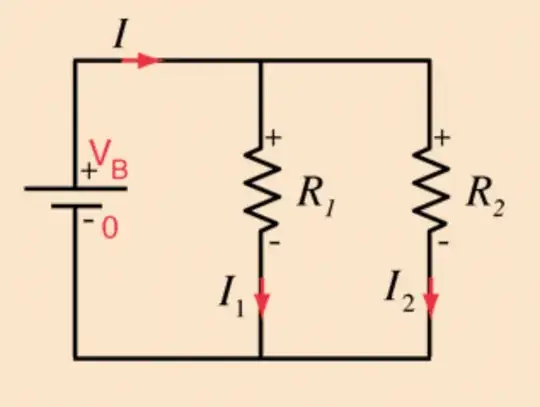I have checked a lot of answers here but none gives a satisfying answer to the question. Doesn't different resistor dissipate different amount of energy in terms of heat? Now you might answer it's because one of the resistor will have larger electric field thus do same amount of work. How do electric field know how to be larger at some part? And there is another things called conservation of energy. I don't understand how you can apply conservation of energy to show there will be same voltage across parallel circuit. It is not necessary that terminal voltage should be same as voltage across circuit because different resistor dissipate different amount to energy think about friction. So why is voltage drop same in parallel Circuit?
(Please don't use hydraulic analogy I think it got a lot of issues in modeling accurate model. But one analogy you can use is a planet and asteroid scenario where one body represents electron and earth represents proton and asteroid belt as resistor which is fixed in place.)
